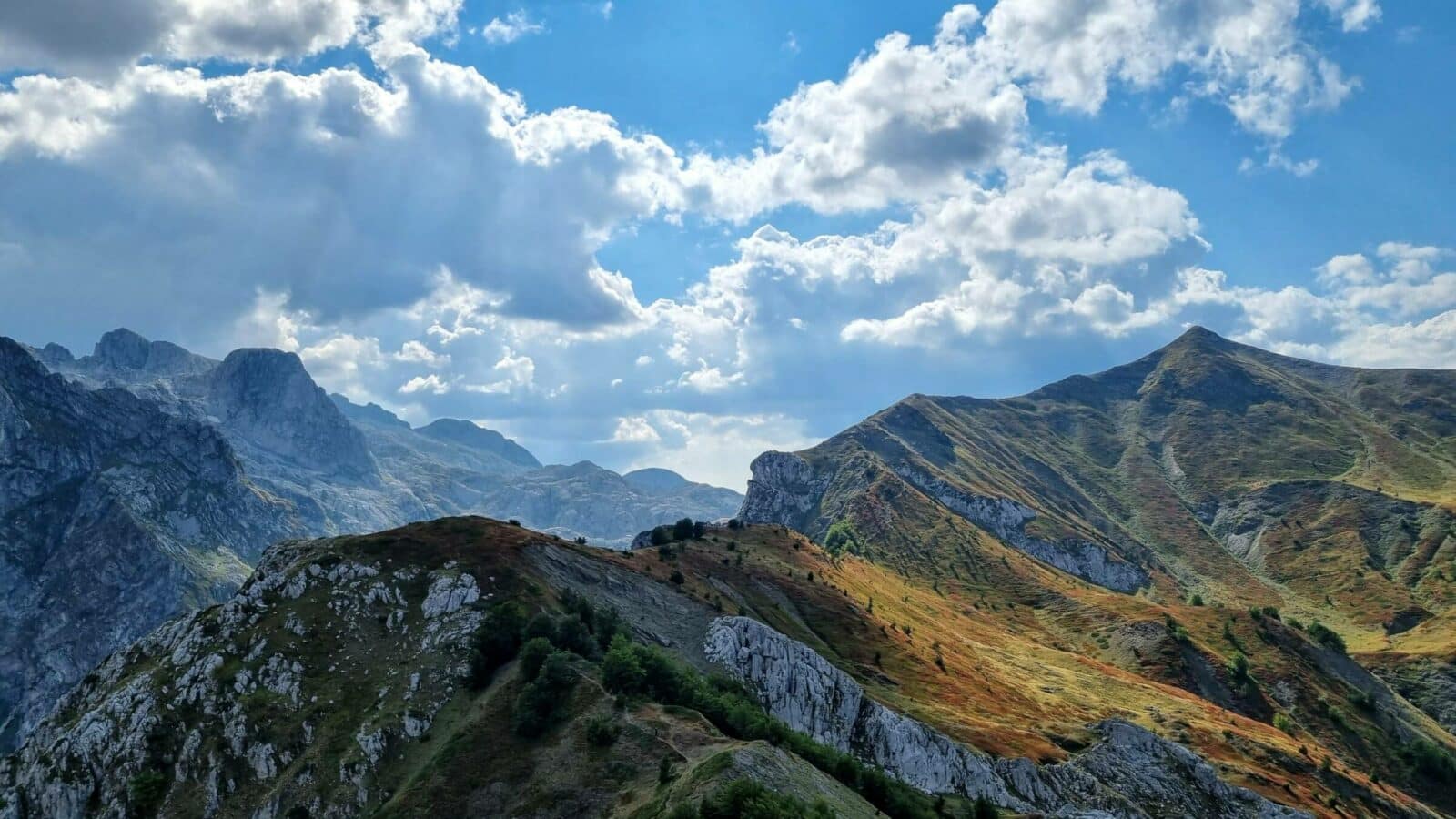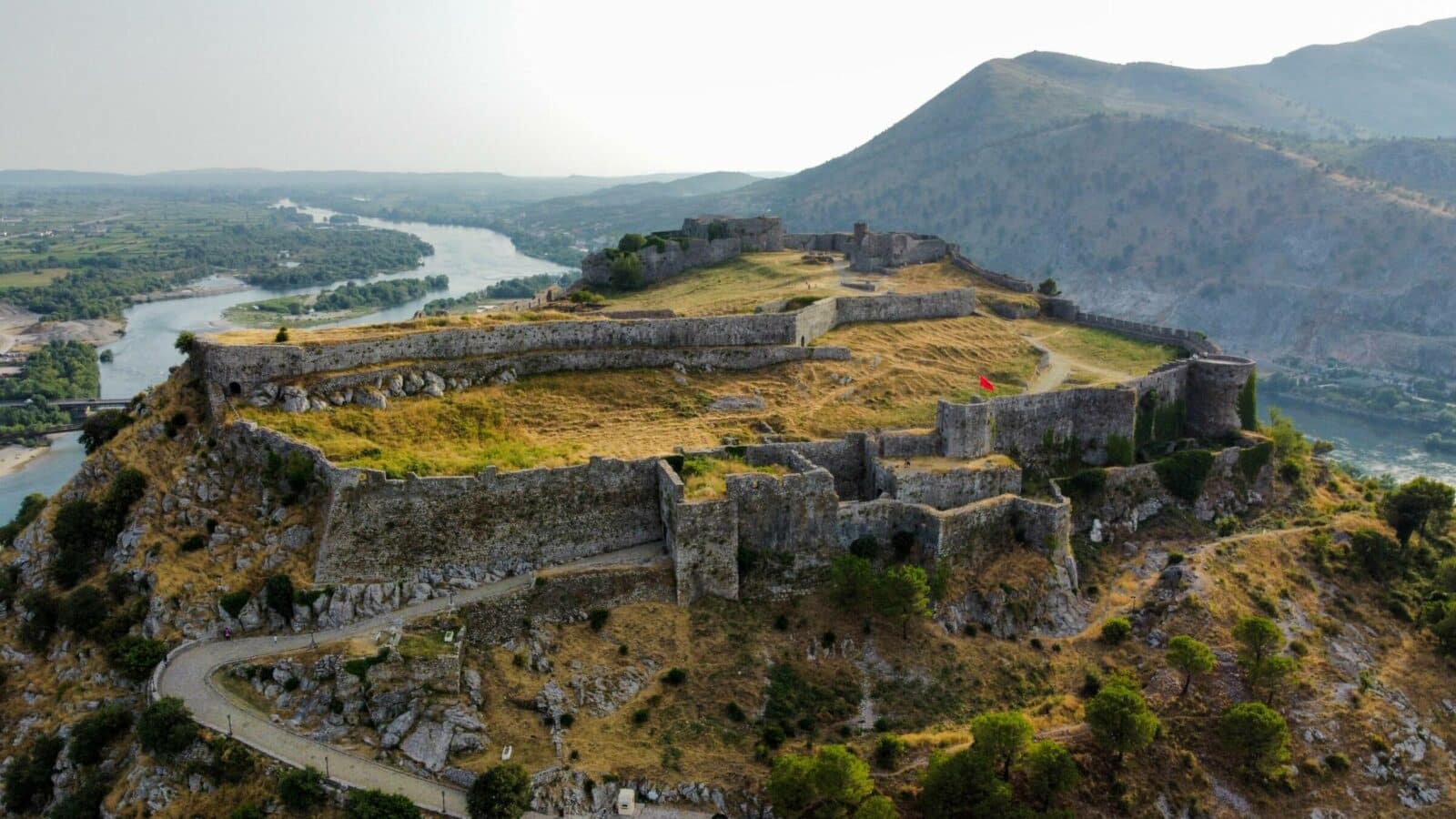Albania is a mysterious land in the Balkans full of myths and legends. Folklore and traditions are still common and ubiquitously present in people’s everyday life. Many of the characters of Albanian mythology are immortalised in songs, rituals, customs and tales, and pass from one generation to another. There is a legend for almost every fortress and every historical building in this fascinating country.
Baba Tomor
It is a personification of the mountain range that is home to the highest peak in central Albania. According to the locals, Mount Tomor is the home of gods. It is common to swear “per baba Tomor” in the region, and this oath is stronger than swearing on Bible or Koran. Surprisingly, the place is sacred not only by pagans but also by Christians – who used to climb it on August 15, i.e. Assumption day – and also by Bektashi, who honoured Abbas Ali on the annual pilgrimage. The legendary Baba Tomor is pictured as an old man wearing a long white beard flowing down to his belt and who is accompanied by four female eagles.

Rozafa castle
The famous castle-fortress is situated on the outskirts of Shkodra – the cultural capital of Albania – and offers a breathtaking view. The legend says that three brothers built the castle. They struggled a lot with the construction: whatever was built during the day was always destroyed over the night. This continued over and over till an old man gave them wicked advice. They should have buried alive a wife, who would bring them some food the next day, in the castle’s wall. The two eldest brothers warned their wives about not coming while only the youngest brother obeyed and did not say anything to his wife. Therefore she came the next day and learned about her sad fortune. She only wished that they left holes in the wall for her right eye, right breast, arm and foot to take care of her baby son. Even today the walls at the foundation of the castle remain damp from the tears of the poor young woman weeping for her son.

Gjirokastra castle
This magnificent castle has its own tale too. The legendary princess, Argjiro, allegedly lived in Gjirokastra in the 14th century. She did not want to be captured by the Ottomans and threw herself from the heights of the castle together with her young son. The princess was dead immediately but her son was still alive. Princess Argjiro and the castle itself became the symbol of the resistance and suffering of the Albanian people towards the numerous invaders.
Mysterious Karaburun Peninsula
This finger of land jutting into the Adriatic sea – that can only be accessible by boat or on foot – is home to about 20 caves of different lengths and heights. The biggest one is the cave of Haxhi Ali, the famous 17th-century pirate. He and his crew used the cave as a shelter. Inside the cave, there is a lake and traces of fire can also be noticed on the walls. The strategic position of the cave enabled Haxhi Ali to attack Venetian, Dalmatian, and Turkish ships.
The ghosts of the capital
Albanian capital Tirana has got a lot of its own ghosts. They are not what we expect them to be. Those are the phantoms of the dark communist era that ended only about 3 decades ago.
The traces of communism can be found everywhere: the house of Albanian dictator Enver Hoxha, a hideous pyramid built in his honour, bunkers as the witnesses of his paranoia and so many more. But all of them are not scary anymore. Blloku – a former restricted district once reserved exclusively for the party elite – is now a fashionable part of the town. Bunkers are transformed into exciting underground art museums. Nowadays Tirana is a nice lively city which continues to evolve even though it will always remember its past and all the lessons learned.
Albania has so much more to unveil for a curious traveller but it is better to explore it yourself. The country still has a lot of mysteries and riddles. Will you dare solve them?
